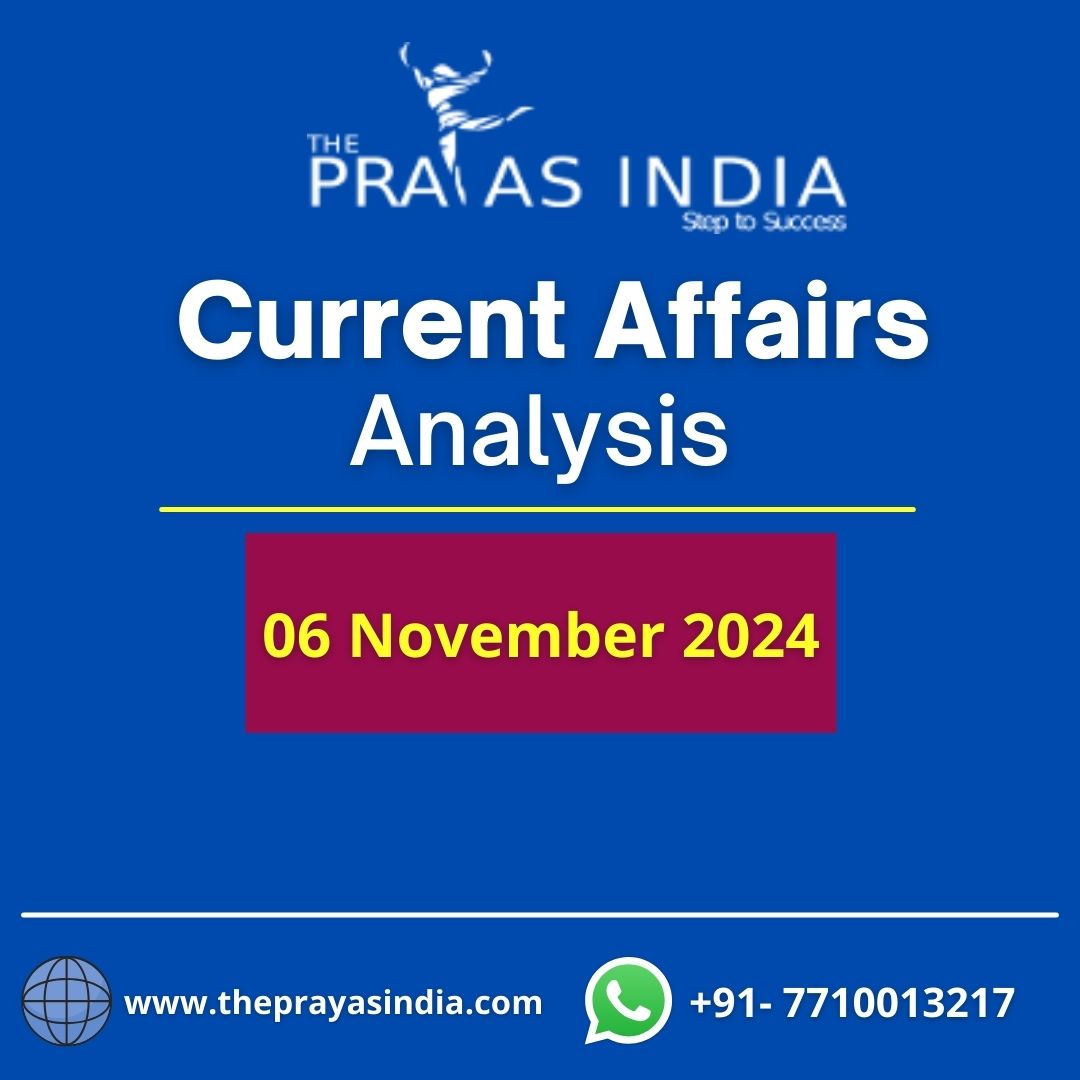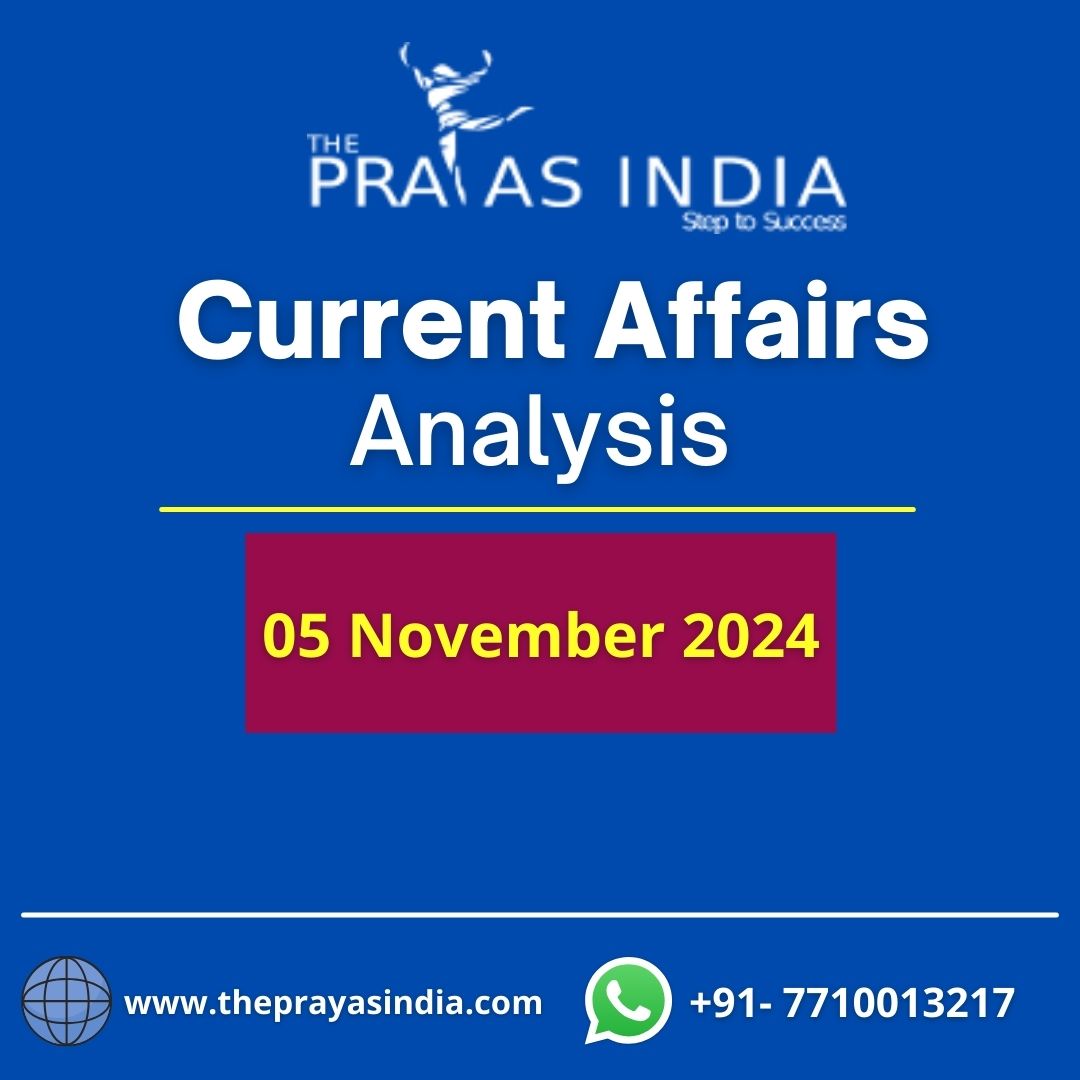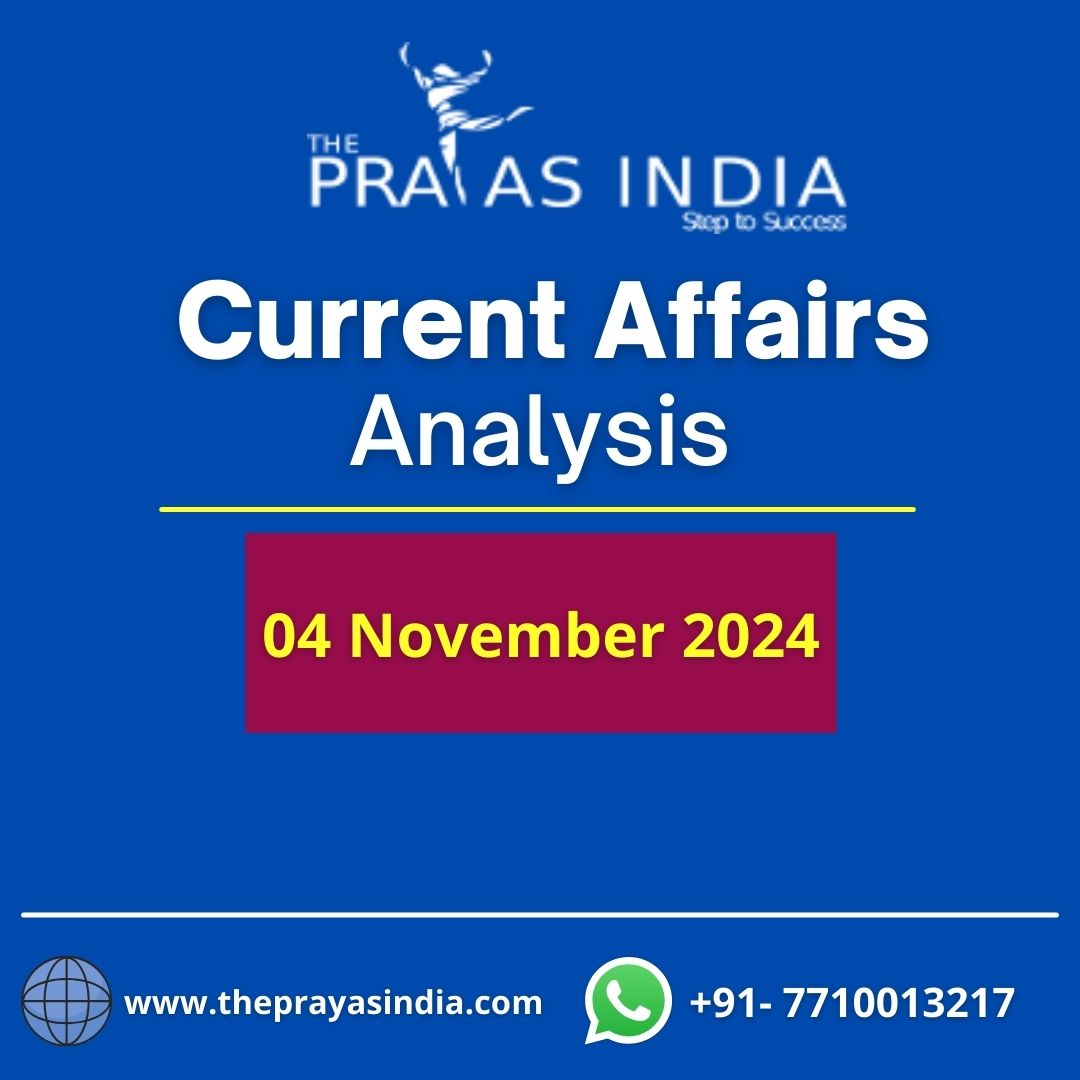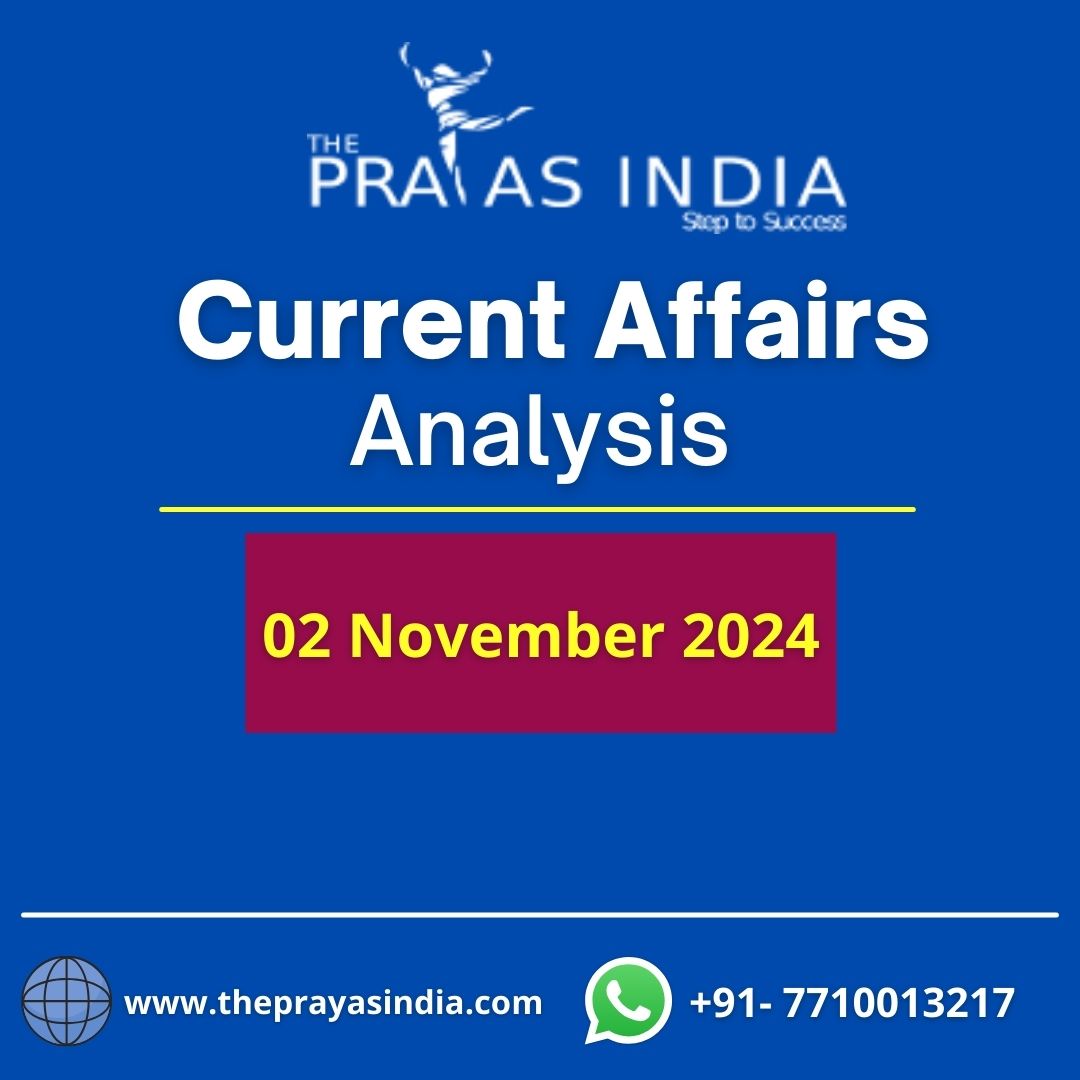DAILY CURRENT AFFAIRS ANALYSIS
| No. | Topic Name | Prelims/Mains |
| 1. | National Investigation Agency | Prelims & Mains |
| 2. | Urban Cooperative Banks | Prelims & Mains |
| 3. | Indian Meteorlogical Department | Prelims & Mains |
| 4. | E Way Bills | Prelims Specific Topic |
1 – National Investigation Agency: GS II Topic Statutory and Non Statutory Bodies
Mission of NIA:
- to conduct thorough professional investigations into the scheduled offences utilising the most recent investigative scientific techniques.
- upholding the Indian Constitution and the law.
- Protection of human rights and respect for individual dignity are of utmost significance.
- by providing regular training and exposure to the latest practises and processes, creating a competent staff.
- ensuring a quick and efficient trial.
- In accordance with the NIA Act’s legal requirements, maintaining respectful and professional relationships with the governments of States, Union Territories, and other law enforcement organisations.
- help in the investigation of terrorist cases by all States and other investigating bodies.
- Create a database of all information relating to terrorists and make it accessible to the States and other agencies.
- Study and examine terrorism-related legislation in other nations. Regularly assess the suitability of Indian legislation. Propose amendments as required.
A need for NIA:
- The smuggling of drugs and weapons, the trafficking of phoney Indian currency, and other organised crime activities are just examples of the complicated inter-State and worldwide links that are discovered to exist between the terrorist occurrences.
- After the 2008 Mumbai terrorist attacks, a central body was established to look into crimes relating to terrorism and other Acts.
NIA’s mandate:
- In accordance with section VI of the NIA Act, 2008, the cases are given to the NIA by the Central Government.
- The Agency conducts an independent investigation into each matter.
- The NIA Special Court is then presented with the cases following an investigation.
- The Agency requests permission from the Central Government to prosecute the accused under the Unlawful Activities (Prevention) Act of 1967 (UAPA) and a few other listed offences.
- According to section 45 (2) of the UAPA, the “Authority” was established, and its report served as the basis for the censure.
- It has the authority to handle terrorism-related offences in all states without the states’ consent.
Smuggling and Funding of Terrorism:
- The High-Quality Counterfeit Indian Currency Smuggling Offenses are now covered within the definition of terrorism under the NIA Act’s revisions.
- A Terror Funding and Fake Currency Cell (TFFC) has been established in the NIA to combat several facets of terrorist financing.
- The Cell keeps track of cases of fake Indian currency notes and financing for terrorism in its database (FICN).
- The TFFC also looks into the financing of terrorism components of routine cases that the NIA looks into.
- The TFFC Cell checks the suspects’ bank accounts who have ties to Naxalite organisations.
- To properly handle instances involving the financing of terrorism by Naxalite organisations, there is a dedicated Left Wing Extremism (LWE) squad.
- The staffing, financial, and infrastructure needs of NIA are periodically reviewed by the Ministry of Home Affairs (MHA).
Recent Change:
- Parliament approved the NIA (Amendment) Bill, 2019, which modifies the original Act of 2008.
- The Bill aims to provide the NIA authority to look into the new offences listed below:
- Trafficking in people
- crimes with fake cash or banknotes
- production or sale of a prohibited weapon
- Cyber-terrorism, and
- Explosive Substances Act of 1908 offences
The NIA’s authority:
- In relation to the investigation of such offences, NIA personnel in India have the same authority as other police officers.
- In accordance with international agreements and national laws of other nations, the NIA’s officers will have the authority to look into scheduled offences committed outside of India.
- The NIA may be instructed by the central government to examine these cases as if the crime had been committed in India.
- These matters will fall within the purview of the Special Court in New Delhi.
Special Courts:
- In accordance with Sections 11 and 22 of the NIA Act 2008, the Central Government establishes one or more Special Courts for the trial of Scheduled Offenses.
- A judge to be selected by the Central Government on the suggestion of the Chief Justice of the High Court would preside over the Special Court.
- On the proposal of the Chief Justice of the High Court, the Central Government may, if necessary, appoint one or more additional judges to the Special Court.
Special Courts’ Authority:
- According to the 1973 Code of Criminal Procedure, Special Courts have all the authority of a court of sessions.
- Any time there is a doubt about a Special Court’s authority, it must be brought to the attention of the Central Government, whose judgement is definitive.
- In some unusual instances where it is not possible to conduct a quiet, fair, impartial, and quick trial, the Supreme Court may transfer a case currently ongoing before a Special Court to any other Special Court within that State or any other State.
- Similar to that, the High Court has the authority to transfer an ongoing matter from one Special Court in a State to another Special Court in that State.
Recent Amendments Have Problems:
- The upkeep of public order and police forces are considered matters of state list under schedule VII of the Constitution.
- Criminal law is included in the concurrent list, although national security is listed under the domains of the union.
- The NIA is given the power to lead investigations into crimes including claims of human trafficking, offences under the Explosives Act, and specific offences under the Arms Act by the Central government.
- Nevertheless, not all of the criminal offences under the aforementioned act pose a risk to the nation’s security or sovereignty, and as a result, nations are competent to deal with them.
- The Information Technology Act’s Section 66F is added to the Schedule listing offences by the Amendment Bill.
- Cyberterrorism is included in Section 66F.
- However, neither a data protection laws nor a concept of cyber terrorism exist in India.
- The NIA Act has been amended to allow the organisation to look into crimes against Indian citizens or those “affecting the interest of India.”
- However, “affecting the interest of India” is a vague phrase that can be abused by governments to stifle free speech.
- Additionally, “affecting the interest of India” is not specifically mentioned as an offence under the laws that provide the NIA the jurisdiction to conduct investigations.
- Source The Indian Express
2 – Urban Cooperative Banks: GS III Topic Indian Economy
Cooperative banks: what are they?
- It is a company founded on a cooperative basis to handle standard banking operations. Cooperative banks, like other banks, are started by raising money through share sales, taking deposits, and making loans.
- They are cooperative credit unions in which individuals from the same community band together to provide one another loans on advantageous conditions.
- They are registered under the Multi-State Cooperative Societies Act of 2002 or the Cooperative Societies Act of the relevant State.
- The Banking Regulations Act of 1949 and the Banking Laws (Cooperative Societies) Act of 1955 both control cooperative banks.
- Cooperative banks in the urban and rural areas make up the majority of them.
Characteristics of cooperative banks:
- Customer Owned: The customers and owners of cooperative banks are the bank’s members. Members of these banks democratically elect a board of directors, who are thus owned and controlled by the members.
- Profit Allocation: A sizeable portion of the cooperative’s annual profit, benefits, or surplus is typically set aside as reserves, while there may be statutory and regulatory restrictions on how much of this profit can be given to the cooperative’s members.
- Financial Inclusion: They have significantly contributed to the financial inclusion of rural populations who do not have bank accounts. In rural locations, they offer cheap financing to the general public.
Urban Cooperative Banks (UCB) – what are they?
- Urban Cooperative Banks (UCBs) are main cooperative banks that are situated in urban and semi-urban areas; the word is not technically defined.
- Due to their regional focus, the Urban Cooperative Banks (UCBs), Primary Agricultural Credit Societies (PACS), Regional Rural Banks (RRBs), and Local Area Banks (LABs) might all be categorised as differentiated banks.
- These banks were only permitted to make loans until 1996 for non-agricultural uses. Today, this distinction is no longer valid.
- Since they primarily financed to small borrowers and enterprises, these banks were historically focused on neighbourhoods and local workgroups. Their operational range has significantly expanded as of late.
Source The Hindu
3 – Indian Meteorlogical Department:GS II Topic Statutory and Non-Statutory Bodies
About the Indian Meteorological Department:
- The India Meteorological Department, also known as IMD, was founded in 1875. It is the nation’s National Meteorological Service and the leading government body for all matters pertaining to meteorology and related topics.
- In 1875, the India Meteorological Department (IMD) was founded. It is a department of the Indian government’s Ministry of Earth Sciences.
- It is the main organisation in charge of seismology, meteorological observations, and weather forecasting.
- The World Meteorological Organization has six regional specialised meteorological centres, and IMD is one of them.
- The cyclones in the northern Indian Ocean are named by the Regional Specialized Meteorological Centre (RSMC) of Tropical Cyclones in New Delhi.
- IMD’s main office is in New Delhi
Objectives of IMD:
- for the best performance of weather-sensitive industries including agriculture, irrigation, shipping, aviation, offshore oil explorations, etc., to collect meteorological observations and to give current and forecast meteorological information.
- to issue warnings about dangerous weather conditions that can destroy both life and property, such as tropical cyclones, nor’easters, dust storms, heavy rain, snow, cold, and heat waves.
- IMD is necessary to offer the meteorological data needed for managing water resources, industry, oil exploration, and other nation-building endeavours.
- to carry out and advance research in meteorology and related fields.
Source The Hindu
4 – E – Way Bills Prelims
About:
- The person causing the movement of the goods uploads the necessary information before the movement of the goods begins and then generates an e-way bill on the GST portal using an electronic interface as a compliance mechanism.
- In the Products and Services Tax (GST) regime, an electronic way bill, or “e-way bill” system, provides the technology foundation to track intra-state as well as inter-state movements of goods of value above Rs 50,000 for transactions beyond 10 kilometres.
- A distinct E-way Bill Number (EBN) is assigned when an e-way bill is generated and is made available to the provider, recipient, and transporter.
- It was started to encourage the quicker circulation of products.
- accelerate vehicle turnaround times.
- Increase the average distances travelled, cut down on expenditures and travel time, and support the logistics sector.
Rules for E-Way Bills:
- Every provider must first register online on the e-way bill portal in order to move products, according to the stated e-way bill guidelines.
- Tax officials have the authority to examine the e-way bill at any time while it is in motion to prevent tax avoidance.
Validity:
- The regulations also state that licences for conventional cargo (other than over-dimensional freight) are only good for a single day’s worth of travel over a distance of 100 km, and in the same ratio for the days after that.
- In principle, the e-way bill’s validity cannot be prolonged; however, a commissioner may only do so for specific types of goods by sending out a notification.
- Penalty for moving goods without producing a legitimate e-way bill:
- Tax authorities may issue a punishment of Rs 10,000 or the amount of tax that is being attempted to be evaded, whichever is larger.
- Goods and the vehicle conveying them may be impounded or seized in such a circumstance.
- The transporter can renew an e-way bill before it expires, however the system forbids regeneration related to the same invoice if the e-way bill has already expired.
Source The Hindu
Hindu Important News:
Front Page
- Truss wins Conservative race to be U.K.’s next PM
Business
- Services PMI flags rebound in August
- ‘Banks healthy enough to brave foreign headwinds’
- Europe heading for recession as cost-of-living crisis deepens
World
- ‘Sri Lanka won’t accept external processes on war accountability’
News
- Centre seeks time for decision on students who fled Ukraine
- Preventive detentions rose in 2021
- Pacts on water, power, defence likely as Hasina arrives in Delhi
- Indebted to my teachers, says President
- SC asks if hijab can be allowed in school
Text & Context
- Seat belts, head restraints and safety regulations
- The ban on conversion therapy for the LGBTQIA+ community
OPED
- Public health need not be led by doctors alone
- Funding public education
Editorial
- Gorbachev, macro-economics, and Gandhi
- The difficult path to India-Pakistan peace
- Rear guard action
IE Important News:
Front Page
- Liz Truss to be UK PM
- SC can you take right to practice religion to school with uniform
Govt & Politics
- Hasina to meet PM today : Trade connectivity, defence on agenda
Explained
- Coming up in Ladakh, India’s first dark sky reserve
Editorial
- Rethinking defence
- Friend in deed
Economy
- GoM meet : Views diverge on tax valuation mechanism rate tweaks
World
- Truss beats Sunak to become UK PM vows to deliver bold plan to cut taxes




